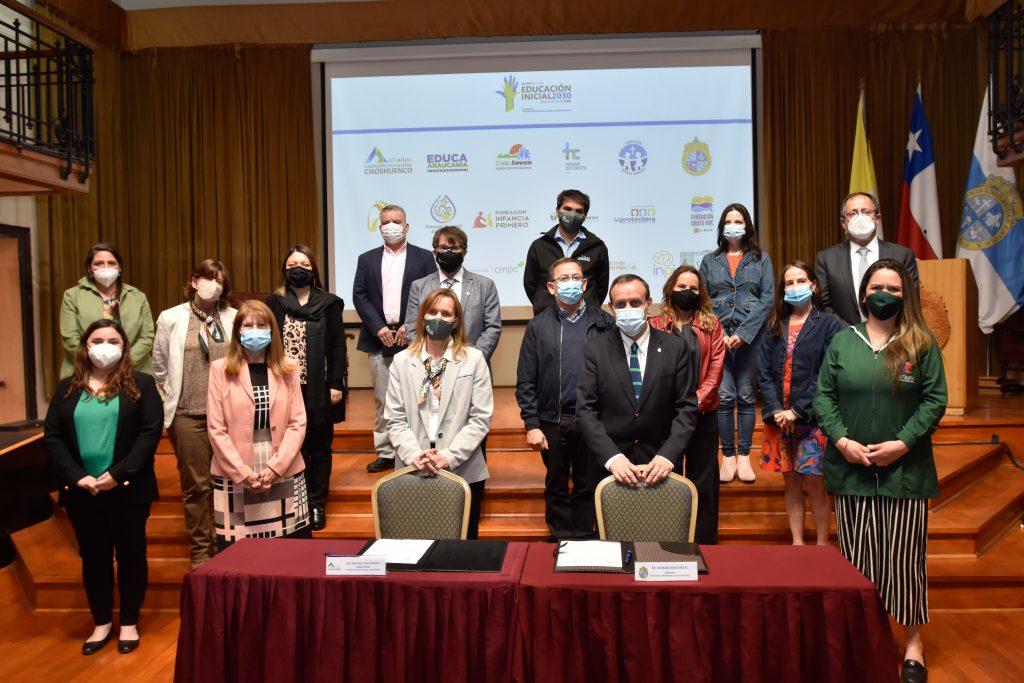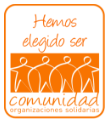The initiative Juntos por una Educación Inicial 2030 para el futuro de Chile, led by the Pontificia Universidad Católica de Chile and Fundación Choshuenco, brings together 19 entities from academia and civil society with the aim of enhancing learning opportunities for children in the country.

Better learning opportunities for children, educators and teachers empowered around teaching tools with a focus on the importance of early education, as well as the development of more nursery schools and kindergartens. These are some of the objectives that bring together and inspire Juntos por una Educación Inicial 2030 for the future of Chile, an unprecedented initiative in the country that brings together 19 institutions specialised in research and in contributing to the quality of early education in the least favoured sectors of Chile.
The launch of the initiative took place at the Central House of the Catholic University and was attended by representatives from the public and private sectors, as well as important entities such as the Undersecretary of Education and the National Kindergarten Board (JUNJI). The event also featured via streaming Hirokazu Yoshikawa, international expert in globalisation and education from New York University, as well as Co-Director of the Global TIES for Children Center. In his keynote speech "Quality early childhood education and care systems: key to the future of countries", he discussed the US experience in early childhood, as well as public policies that seek to promote intensive family programmes and support after the effects of the Covid-19 pandemic.
Meanwhile, the Rector of the Pontificia Universidad Católica de Chile, Ignacio Sánchez, praised this initiative in relation to a stage that is key in the formation processes of the next generations. "Early education is a key driver of development for the country. Much is said about building a fraternal country, but part of this challenge is related to promoting and enhancing learning. Today it is key to work on collaboration to improve educational and social conditions in early childhood. Thus, from this meeting, we have proposed to work on early education and care for the most vulnerable families on the basis of a more equitable and sustainable future for the next generations of children in Chile.
Beatriz von Appen, director of Fundación Educacional Choshuenco, warned that early education today faces important challenges at the local level, which was intensified by the Covid-19 pandemic. "In less favoured environments, it is key to have an education of excellence to reduce gaps. In 2020, we saw that the months of quarantine had an impact on many families, especially on children's educational processes. That is why we joined in this alliance to reinforce the importance of early childhood education. If we want to have a society with greater human wealth, it is essential to have early education with the right tools. We want to ask the authorities and the media to put early education at the centre of the discussions. We want to accompany vulnerable families so that their children can reach the maximum possibilities of development. The richness of a society is undoubtedly measured by how it treats its children and older adults," said the expert in early childhood education.
At the event, the Rector of the Adolfo Ibáñez University, Harald Beyer, also shared his views on the cognitive contexts of the next generations. "There is an enormous vulnerability among children aged 0 and 4, who do not reach the minimum threshold of equal opportunities. Early education can go a long way in alleviating various problems faced by children, enriching the linguistic environment and also reducing the stress of the realities they experience in vulnerable contexts. It is through early education that this project wants to make a mark. These are foundations and organisations that will contribute with their practical experience," she said.
Opportunities and challenges 2030
Together for Early Education 2030 for the future of Chile is based on three main objectives, which are related to the construction of a public narrative on early education from an international perspective. In addition, there is a need to articulate and mobilise resources and conditions to make early education a priority issue for both the public and private sectors. The third objective of the initiative focuses on creating a platform for knowledge transfer between different organisations for the dissemination and understanding of the scope of early education for the country's development.
The Chilean scenario in this area was analysed by Hirokazu Yoshikawa, who, in contrast, described the US experience. The expert referred to comprehensive initiatives such as Head Start, which are centres that focus on community services. This is based on resources linked to breastfeeding advice, the promotion of sport, the strengthening of cognitive processes and the development of a culture based on innovation. It is a comprehensive model that also includes training on the best teaching methodologies for teachers. The renowned specialist highlighted the efforts being made in Chile, while calling for the strengthening of the exchange of experiences between our country and the United States.
At the launching activity, held in person and online, a panel discussion was also held, comprising the Dean of the Faculty of Education of the Pontificia Universidad Católica de Chile, Alejandro Carrasco; the Vice-President of JUNJI, Adriana Gaete; and the Director of the Santa Rosa de Lo Barnechea Kindergarten and Nursery School, Andrea Arceu. The meeting, moderated by the Executive Director of Fundación Choshuenco, José Manuel Jaramillo; and the Director of Centre UC, Ernesto Treviño; addressed the main advances that today outline the first steps of the initiative Juntos por una Educación Inicial 2030 for the future of Chile.
For more information, we invite you to visit the website of this initiative at: www.educacioninicial2030.cl





